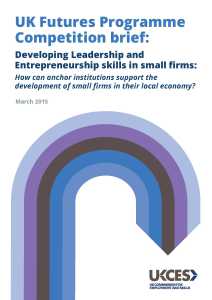We undertook a three stage evaluation of the Low Carbon Innovation Fund (LCIF), commissioned by the University of East Anglia (UEA). LCIF is a regional venture capital fund in the East of England funded by the European Regional Development Fund (ERDF) in the 2007-2014 programme. It has fully invested its funds of £20m+, intended for early stage equity investments in small and medium enterprises (SMEs) which are developing new and innovative products, services or processes in a low carbon, environmentally sensitive manner.
Our final report is available, in summary (download) or in full on request to LCIF. We produced a further impact report in April 2017, on performance to the end of December 2016,
The Fund is operated by UEA as part of the Adapt Low Carbon Group and managed by City firm, Turquoise International.
The Initial Review concentrated on the management of the Fund from operational, strategic and financial perspectives, with the subsequent stages concerned progressively more with outcomes of the Fund: actual and likely impacts on company performance and jobs, and contributions to the low carbon objectives of ERDF in the region. Our recommendations have informed the delivery and marketing of the Fund, which is proving highly successful in attracting co-investment and fostering innovation.
We carried out the evaluation in conjunction with Futureneering Ltd, Cambridge-based consultants who bring complementary expertise in low carbon technologies.






